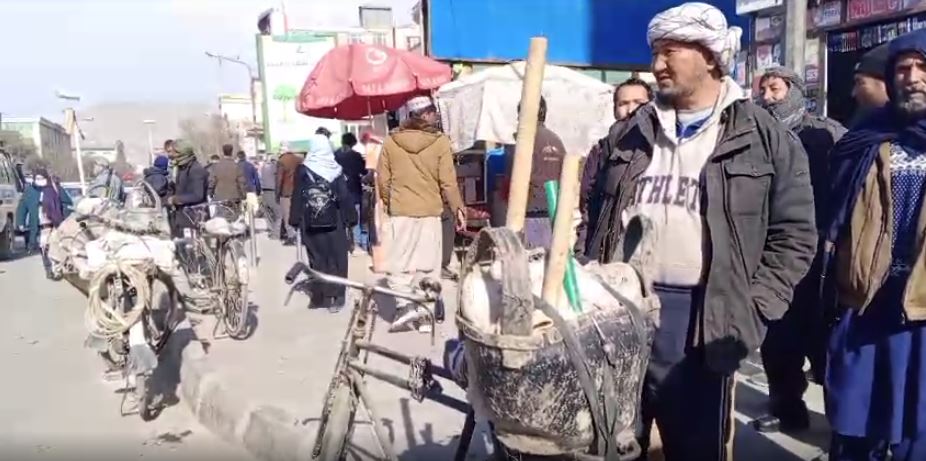Amid Afghanistan’s deepening economic crisis, many former government employees in Kabul are turning to daily wage labor, struggling with poverty and a lack of employment opportunities.
The onset of winter has further limited job prospects, leaving many waiting for days to find work.
Noor Agha, 48, a former employee of the Independent Election Commission, now relies on physical labor for income. “In the last fifteen days, I’ve earned only 50 Afghanis (about $0.71). I have no other means of income,” Agha said, highlighting the challenges faced by many to support their families.
Other workers echoed similar concerns about the scarcity of jobs and rising poverty. “Previously, a laborer could earn four hundred Afghanis per day, but now work is scarce, and people work for just two hundred Afghanis,” said Fareed, another laborer.
In addition to employment woes, Kabul residents, especially those engaged in roadside work, are grappling with high food prices, despite the Afghan currency’s gains against the dollar.
“Winter is cold, our children and we are sick. The people’s economy is weak,” shared Mohammad Jan, a laborer.

The United Nations Development Programme reports that 85 percent of Afghanistan’s population lives below the poverty line.
The World Bank’s 2023 annual report further notes that 15 million Afghans face severe food insecurity, a situation exacerbated by ongoing economic difficulties.





